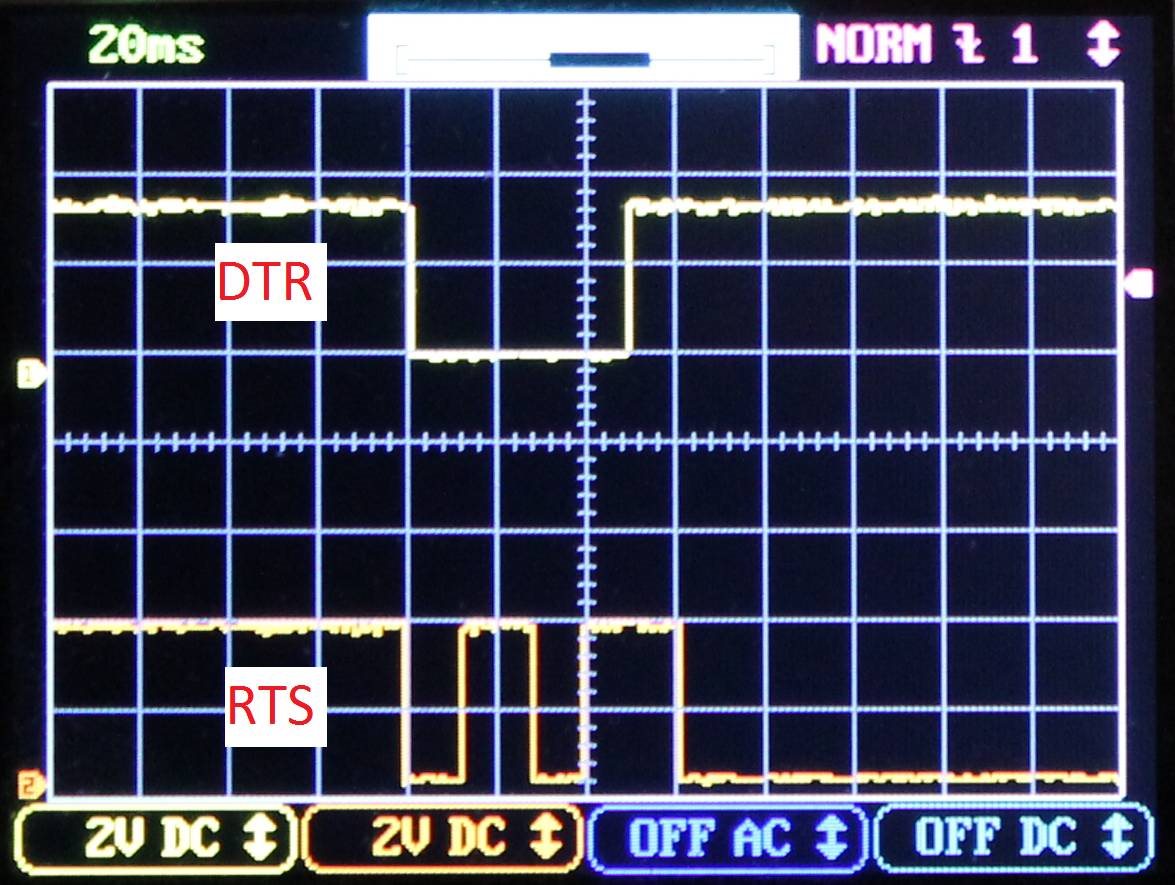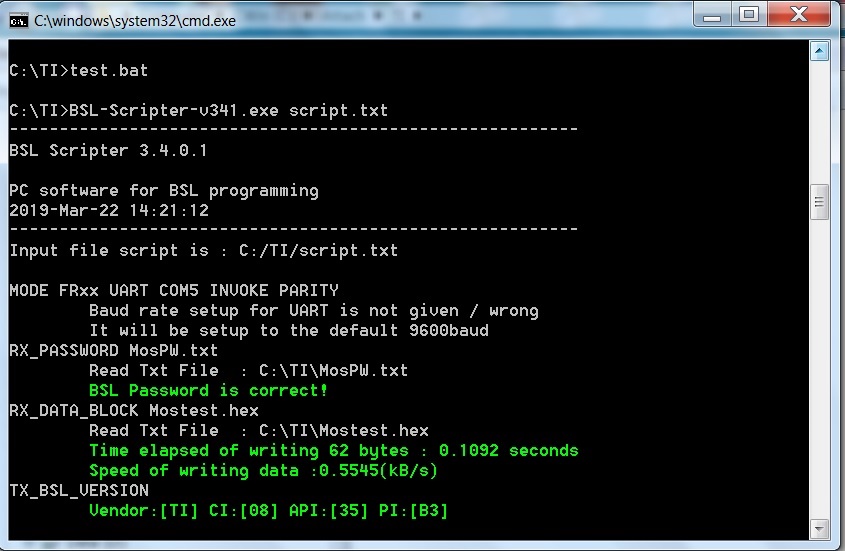A new WIN32 version of BSL-Scripter.exe has been compiled which allows BSL flashing using generic USB-to-UART adapters such as the FT232, CP2102 and CH430 as the hardware interface. It can be used with MSP430 F5xx F6xx, and FRxx parts with UART BSL.
This version has a new MODE line option "INVOKE", which causes Scripter to directly generate the BSL hardware invocation sequence on the adapter's DTR and RTS outputs, which in turn are connected to the /Reset and Test pins on the target device. It produces the pattern shown in Figure 2 of slau319w.pdf and slau550s.pdf, which is normally generated by the Rocket or MSP-FET. If the INVOKE option is used, you must include the PARITY option as well.
I have successfully tested the new Scripter on an MSP430FR2311 using all three adapter types. It would be helpful if others could test other relevant MSP430 parts and report the results.
This has finally come about as a result of the generous efforts of "drcrane" on Github, who not only got TI's source code to compile with new versions of all the dependencies, but also navigated the mysteries of BOOST to control the DTR and RTS lines. The new Scripter and a related Instructions file are contained in "BSL-Scripter-v3.4.1.zip" in the Releases folder of his repository, which also contains the source code:
https://github.com/drcrane/bslscripter-vs2017/releases
For those who must run an official TI version of Scripter, I will leave on my Github the now-deprecated kludge option for using these adapters with the official Scripter, but of course it requires either manual intervention or an additional circuit:
https://github.com/gbhug5a/CP2102-with-BSL-Scripter-for-MSP430
And finally, a reminder that the older MSP430 parts which use BSLDEMO2 for flashing, including the F1xx, F2xx, F4xx, and G2xx parts with BSL, can also be flashed with these adapters if a modified version of BSLDEMO is used, such as the "BSLDEMO-2.01C.exe" found in my other repo:
https://github.com/gbhug5a/MSP430-BSL
Texas Instruments has neither reviewed nor approved any of this. But I continue to hope TI will officially make similar changes to BSL-Scripter and BSLDEMO to support the use of these generic adapters.



